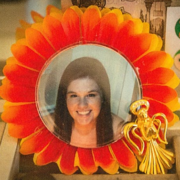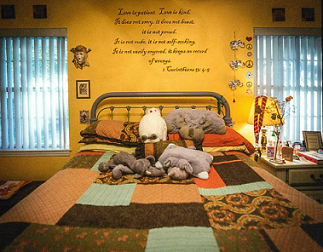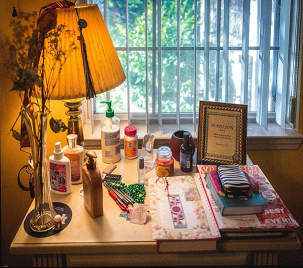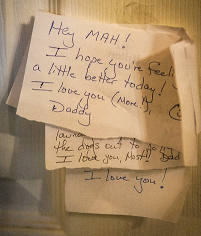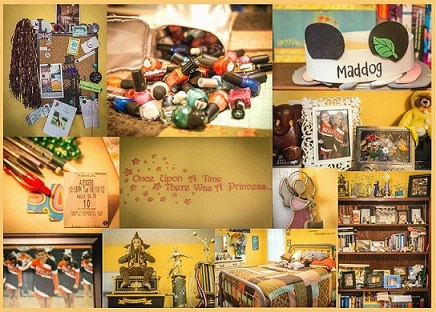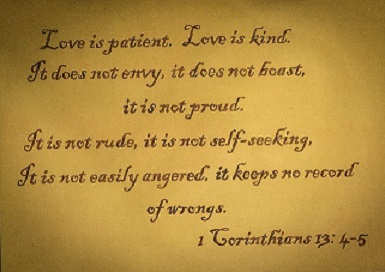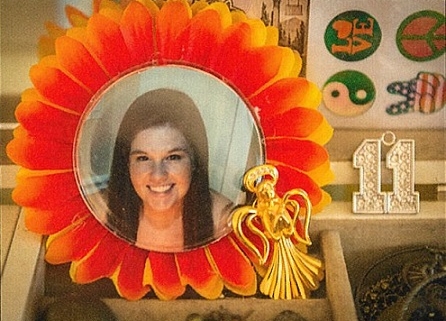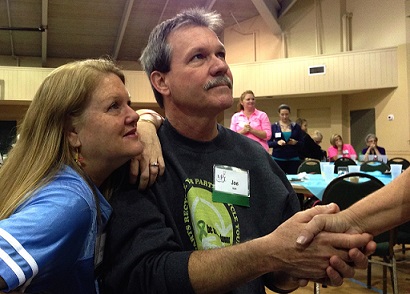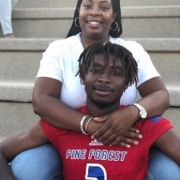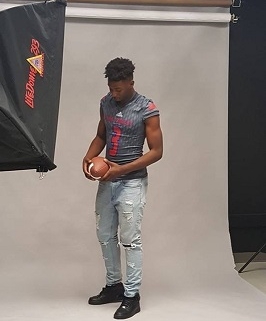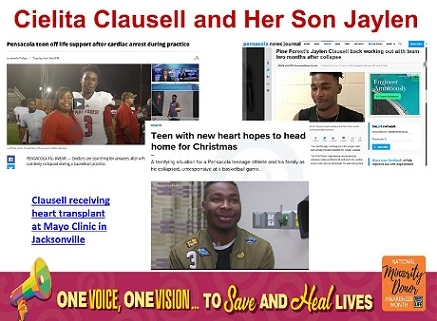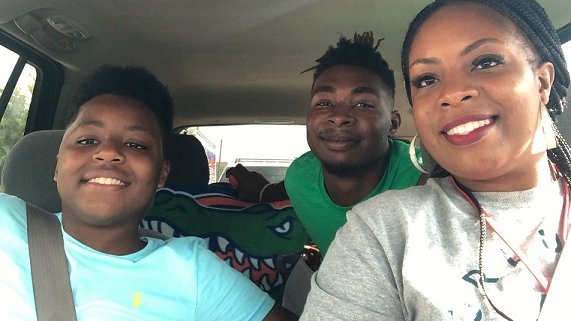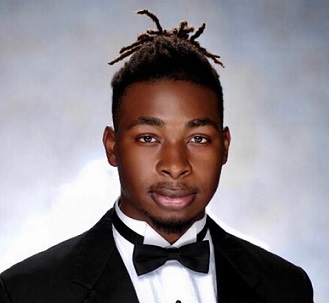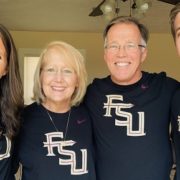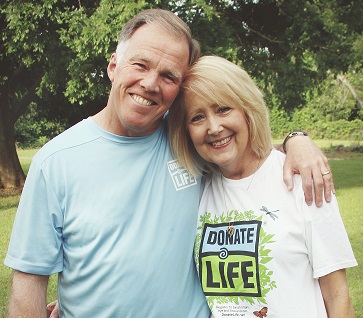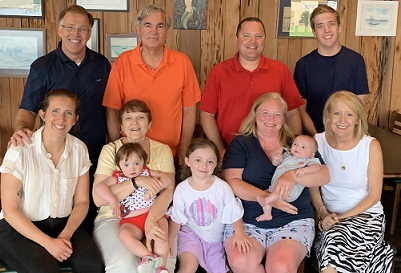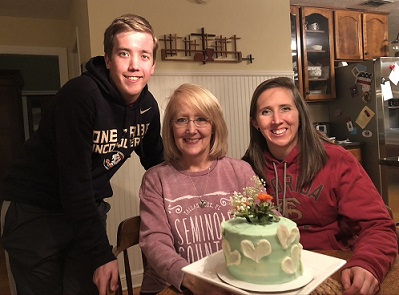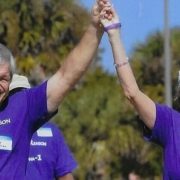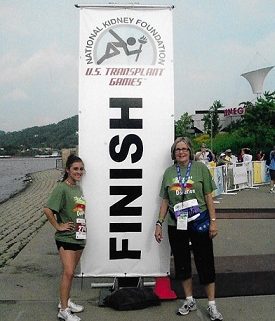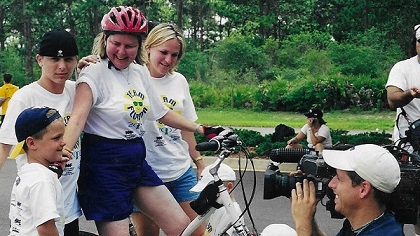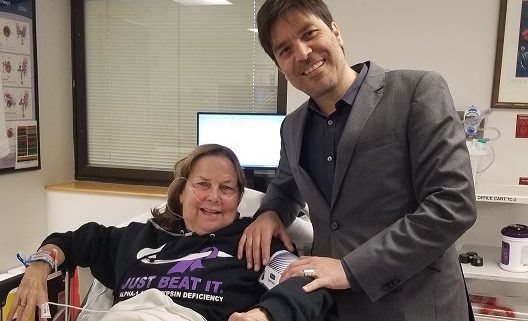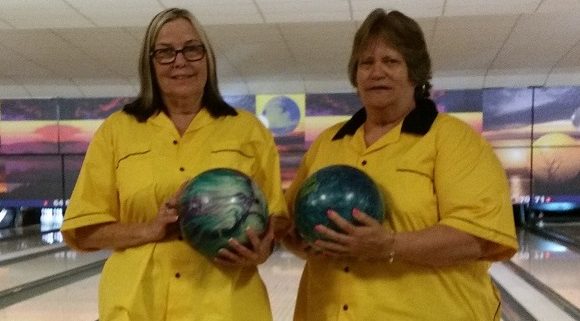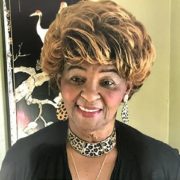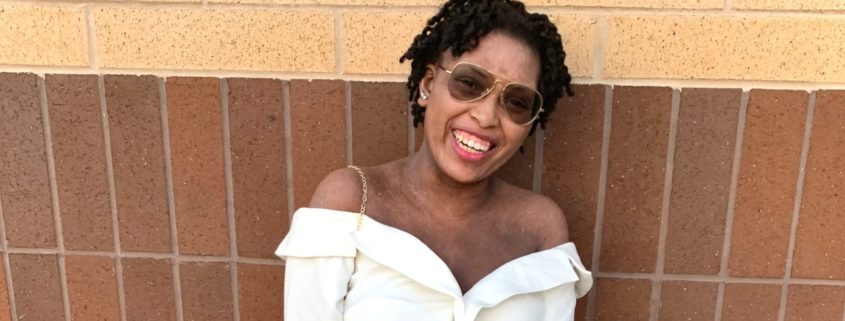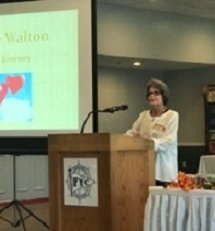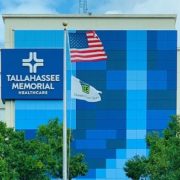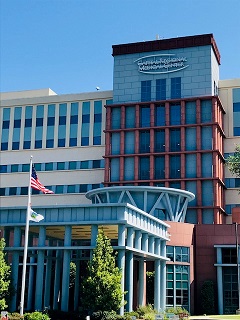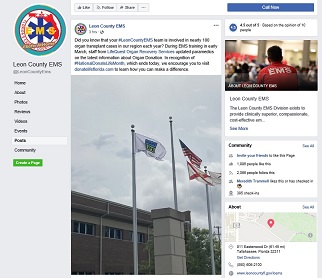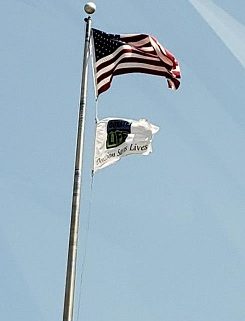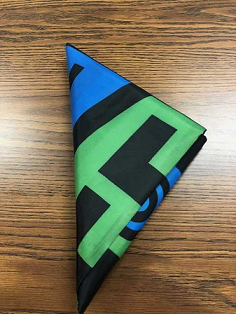Pawsome Pet Therapy
April 2024
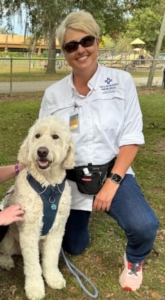
Team Louie
When friends and family of a patient who had passed away gathered at Tallahassee Memorial HealthCare to say their goodbyes, 7-year-old Golden Doodle Louie knew exactly what to do to comfort them.
“My big 95-pound dog got in bed with the little boy and put his chin on him; it was so touching,” said Rhonda Tullos, a volunteer at Tallahassee Memorial Animal Therapy and Louie’s handler.
Walls came down. The mood in the room felt instantly lighter. The patient’s mother somehow managed a smile, and his younger brother, too young to understand, hugged Louie.
“We talked to the little boy, talked with mom and gave her a moment to see Louie loving on her son,” Rhonda said. “Just to be able to give her this one last little happy thing.”
The next day, Team Louie took part in the patient’s Honor Walk, a sacred tradition where family, friends and hospital staff line the hallways to show respect for patients who are donating organs to others as they make their final journey from their ICU room.
“It was the sweetest thing I think I’ve ever seen,” Rhonda said. “What got me the most was seeing the first-responders. I love our community. We’re small enough that we still care about each other and take care of each other.”
Serving patients and their families through physical and emotional challenges, rehabilitation and loss is what Tallahassee Memorial Animal Therapy is all about. Trained volunteers and their pets help reduce anxiety and bring relief to people of all ages. Patients are able to interact safely with the dogs and receive their unconditional love, making their hospital stay less stressful and, in some cases, more like home.
“A lot of patients are missing their dogs,” Rhonda said. “They see Louie and knowing I’m a dog lover, they show me pictures of their dog.”
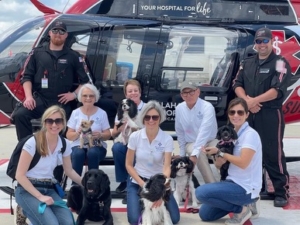
TMH Animal Therapy and Survival Flight
While a growing number of hospitals across the country offer animal therapy, Tallahassee Memorial Animal Therapy is the only program of its kind in the Big Bend region. It has been nurturing the healing bond between people and animals since 2005. All told, about 200 teams visit more than 70 community facilities a year.
Cats, bunnies, birds, horses and other pets are also available to offer therapy, though not all of the animals are permitted to make hospital visits. Matches are made based on the situation, location, an animal’s temperament, and other factors. Some of the animals are rescues from local shelters.
In addition to medical rehabilitation, animal therapy teams visit with seniors to offer them a break from depression and loneliness, and they assist victims of violent crimes with telling their story accurately in court. They also work with reluctant readers in various schools in Leon and Wakulla counties. Students in the program enjoy weekly sessions practicing reading aloud to a handler-animal team. R.E.A.D.® (Reading Education Assistance Dogs) is an international program that improves self-confidence, as well as reading and speaking skills.
“I had one teacher tell me one little boy will now raise his hand and read out loud in class,” Rhonda said.
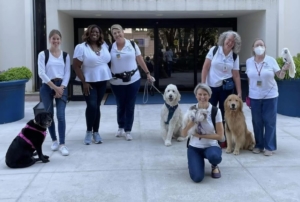
TMH Animal Therapy Teams
Something remarkable happens when an animal enters the room. Whether helping a child learn to read or helping a mother say goodbye to her young son, the animals and their handlers have an impact far beyond hospital walls.
Stephanie Perkins, director of Tallahassee Memorial Animal Therapy said the animal creates a distraction, first and foremost.
“There’s a different feeling in the room,” Stephanie said. “It’s backed by hard science.”
The health benefits of dogs and cats are well-documented. Petting a canine companion can help lower blood pressure and ease depression. And pets help decrease stress by lowering levels of the stress hormone cortisol, and increasing levels of the neurochemical oxytocin, the love hormone.
“Having an animal there is really helpful in a lot of cases because they are non-judgmental creatures,” Stephanie said. “The animal doesn’t care if you’re bawling, or if you haven’t had a shower in five days.”
Animal therapy teams significantly impact the lives of those who are most vulnerable. They have the potential to motivate patients and set them on a path to healing.
“The patient will make that little extra effort to pet the dog or reach way over here to give the dog a treat,” Rhonda said.
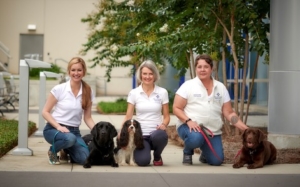
TMH Animal Therapy Leadership
Louie was a puppy when Rhonda first heard about Tallahassee Memorial Animal Therapy. Dogs with the right temperament can be trained as a therapy animal after their first birthday. Louie entered the program in 2020 at the age of 3 and has become a rock star in the halls of Tallahassee Memorial HealthCare and on social media. Louie has his own Facebook and Instagram pages, as well as business cards and a custom sticker with his mug on it.
“You should see him,” Rhonda said. “He loves the attention. The minute we walk into the hospital parking garage, he starts prancing. A crowd of kids makes him so happy.
“We know how happy our dogs make us. We just want to share that with other people.”
If you are interested in learning more about how to become a trained animal therapy volunteer, visit TMH.org. New recruits are considered twice a year. Teams attend a 10-week course, and therapy dogs must pass a nationally recognized basic skills and therapy skills evaluation. Only about 20% pass on the first try. Some of the animals were rescued from local shelters.
——
April is National Donate Life Month, and LifeQuest is joining forces with Leon County Animal Services to help save lives. Each week, we will feature an adorable adoptable Pawsome Pet dressed in blue and green on social media. Browse the Pawsome Pets album on LifeQuest’s Facebook page or scan the QR code below to find a furry friend. For more information, contact Alexis Poulsen at Leon County Animal Services at 850-891-2970 or 850-491-4747.
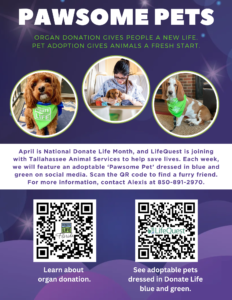

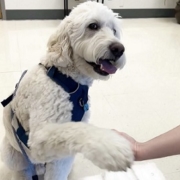
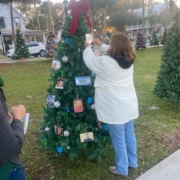
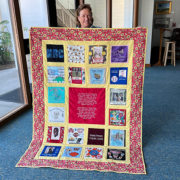
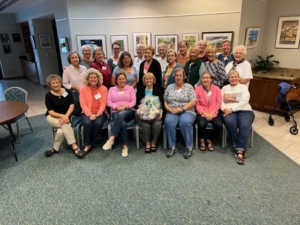
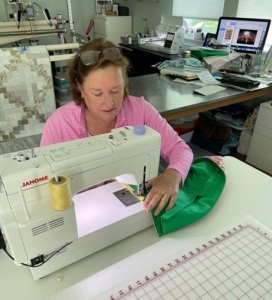
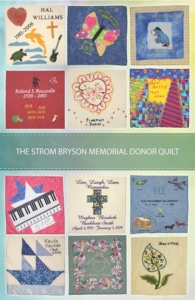
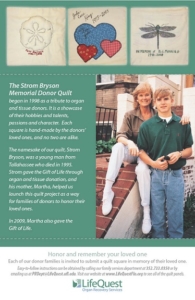
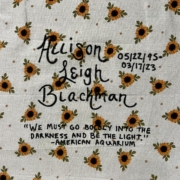
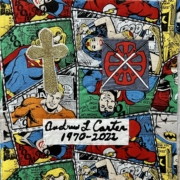
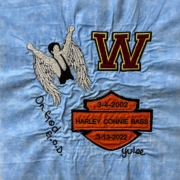

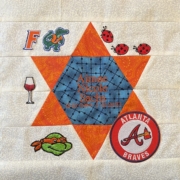
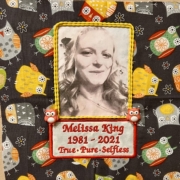
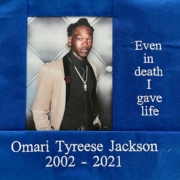
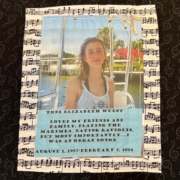
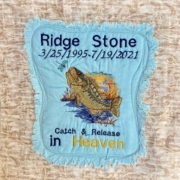
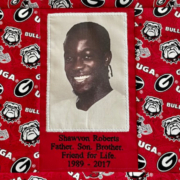
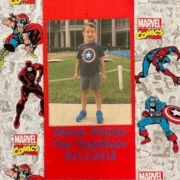
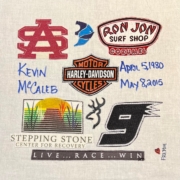
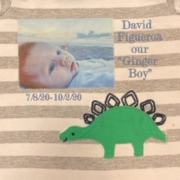
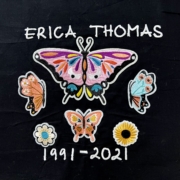
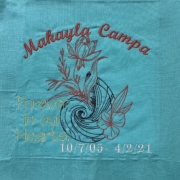
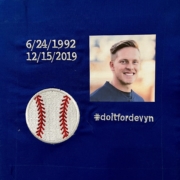
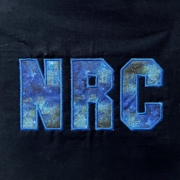
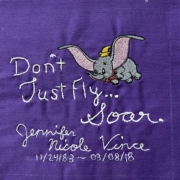
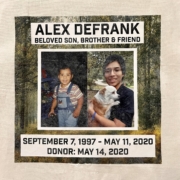
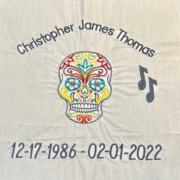
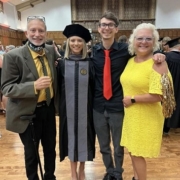
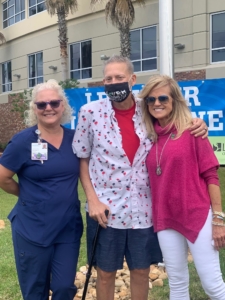
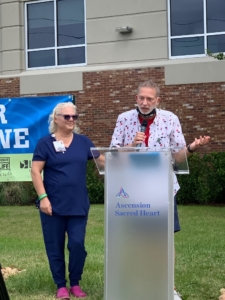
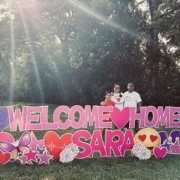
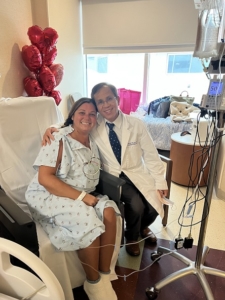
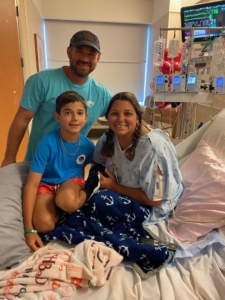
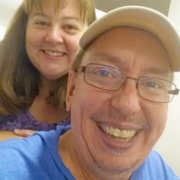
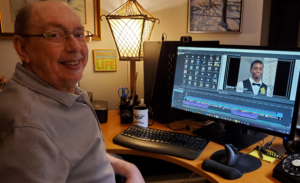
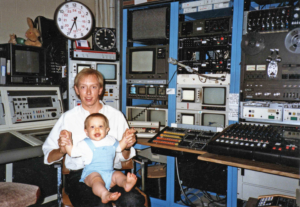
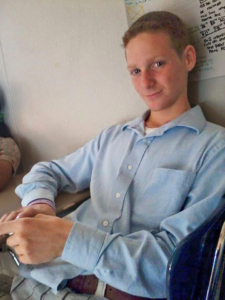
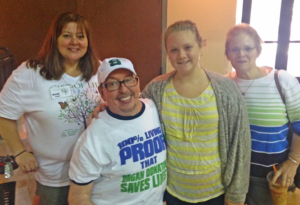
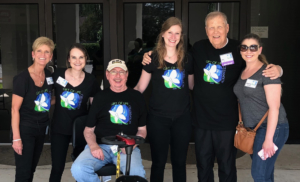
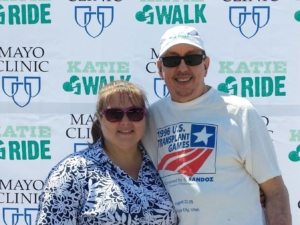
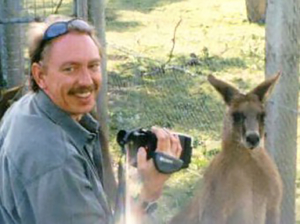
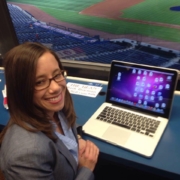
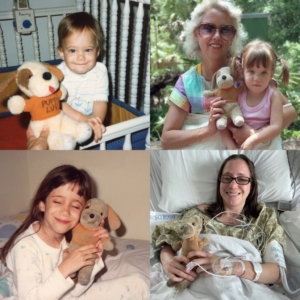
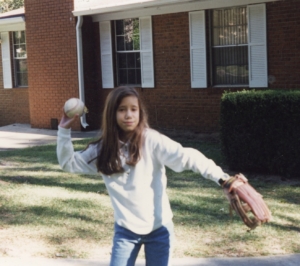
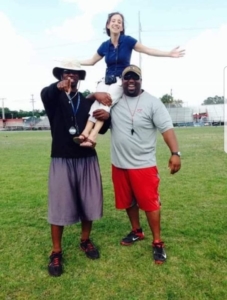
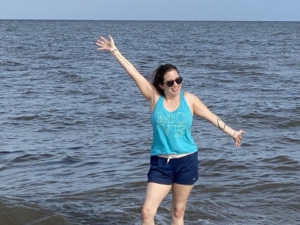
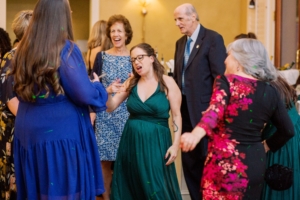
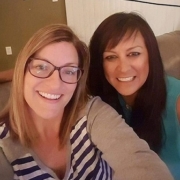
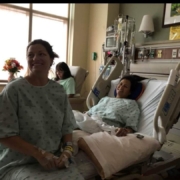
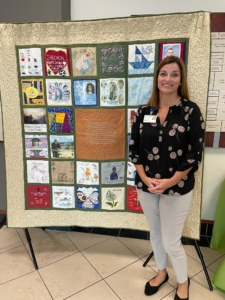
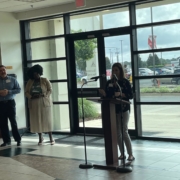
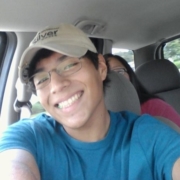
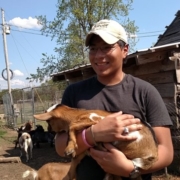
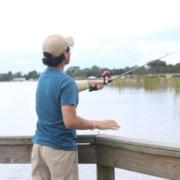
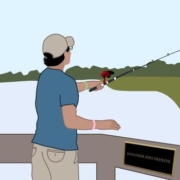
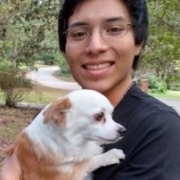
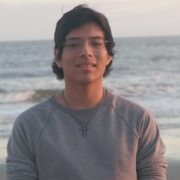
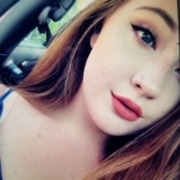
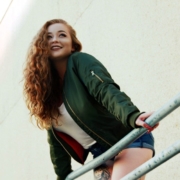
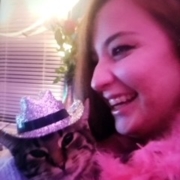
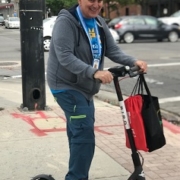
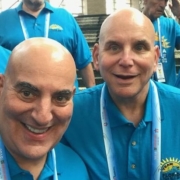
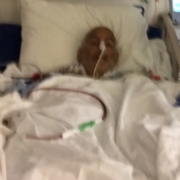
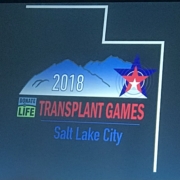
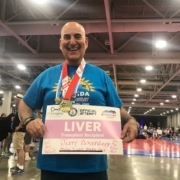
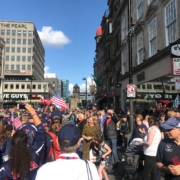
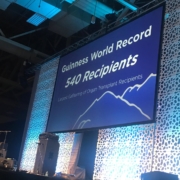
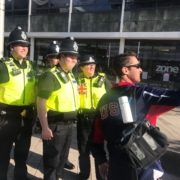
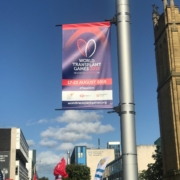
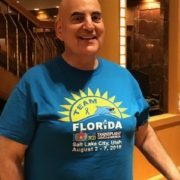
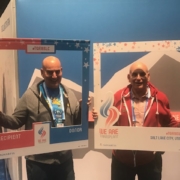

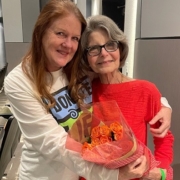
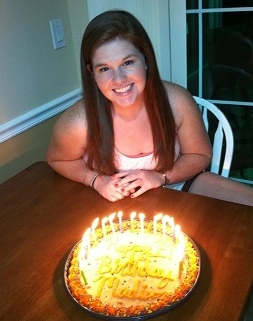
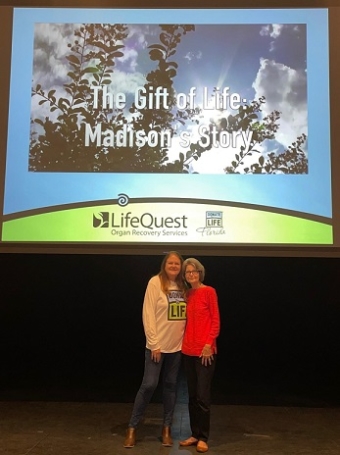
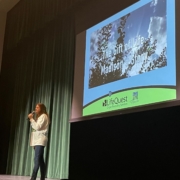
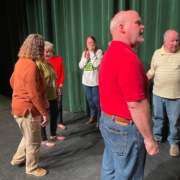
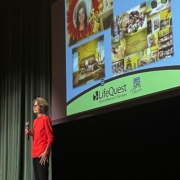
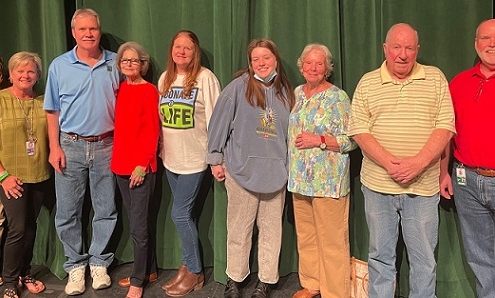
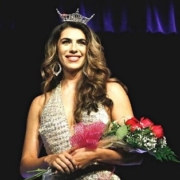
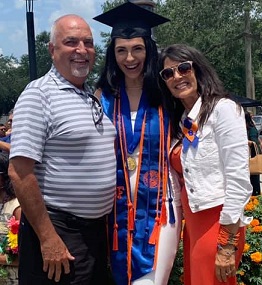
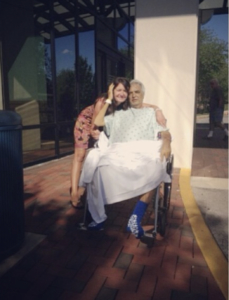
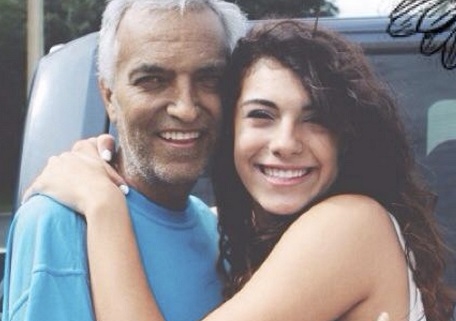
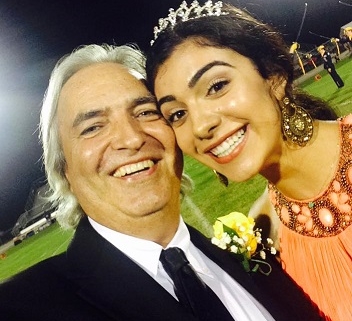
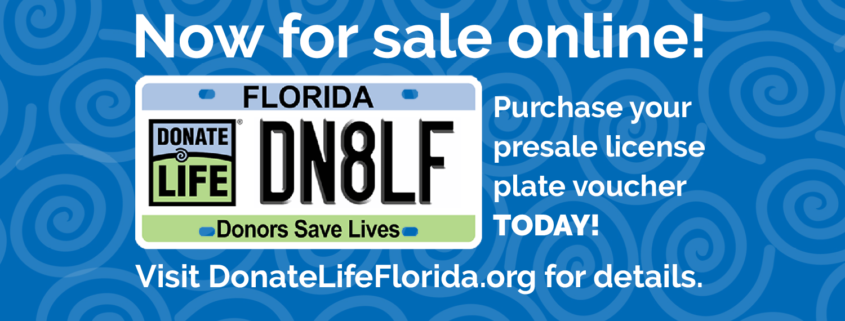
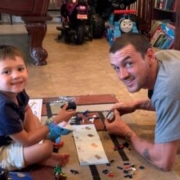


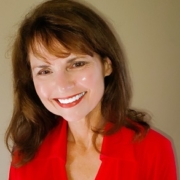
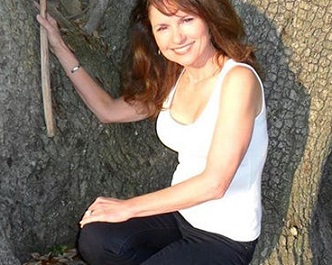
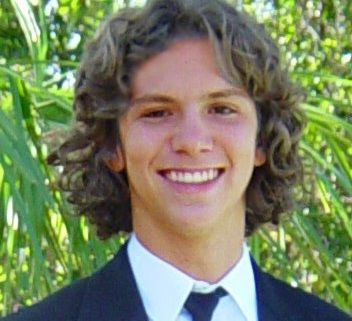

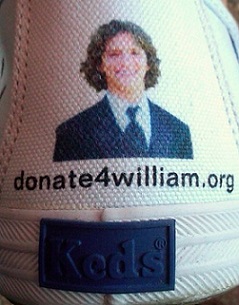
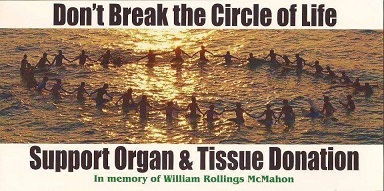 Kim printed the circle-of-life image on 50 T-shirts and gave them to William’s friends. Soon requests for T-shirts started rolling in. When other recipients and donor families wanted to get involved, Kim graciously incorporated their ideas and art onto T-shirts, cards and other items. She knew the campaign had taken on a life of its own when she started receiving selfies from students and strangers wearing circle-of-life T-shirts from locations around the world.
Kim printed the circle-of-life image on 50 T-shirts and gave them to William’s friends. Soon requests for T-shirts started rolling in. When other recipients and donor families wanted to get involved, Kim graciously incorporated their ideas and art onto T-shirts, cards and other items. She knew the campaign had taken on a life of its own when she started receiving selfies from students and strangers wearing circle-of-life T-shirts from locations around the world.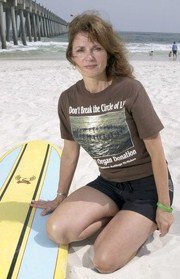
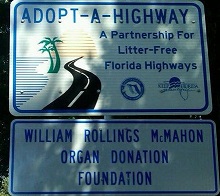
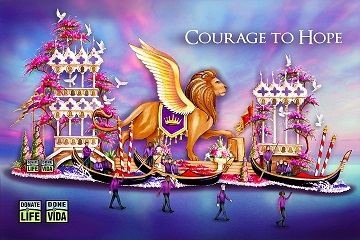
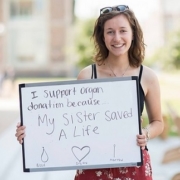
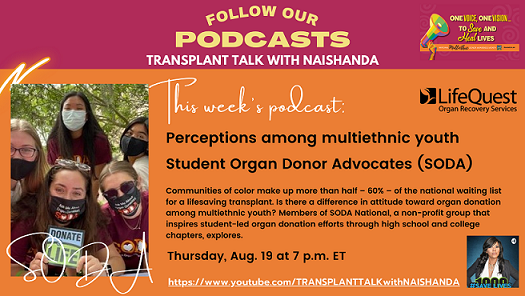
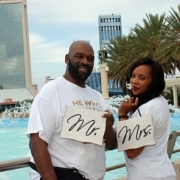

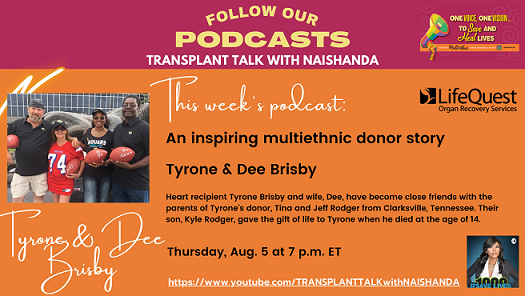
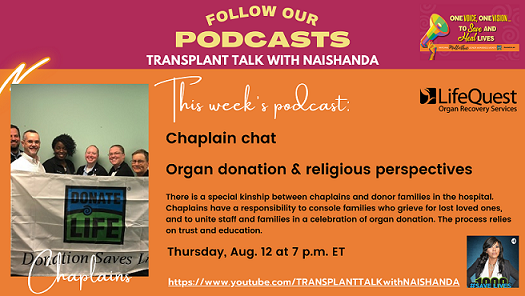
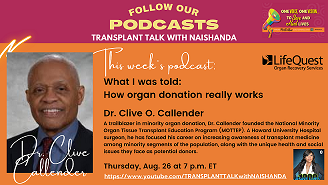
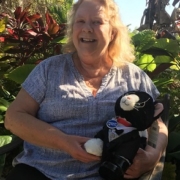
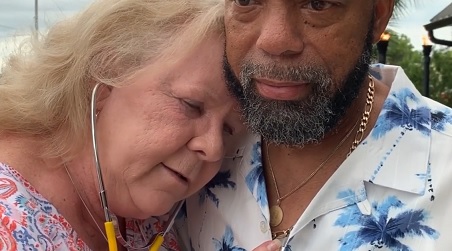
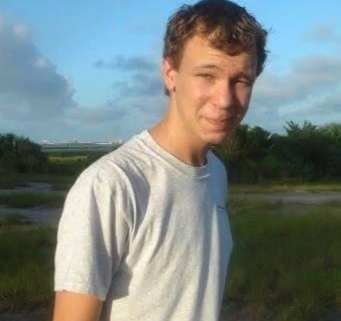
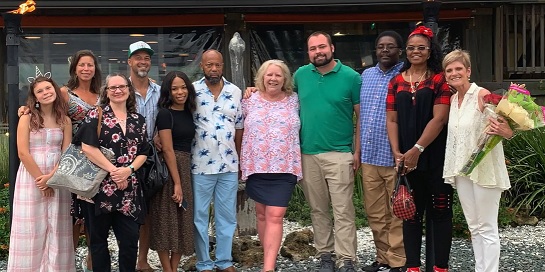
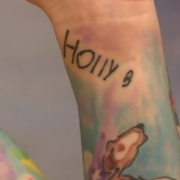
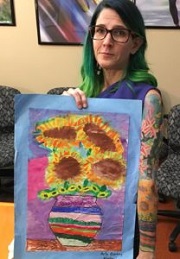 accident. She donated Holly’s organs and saved four lives.
accident. She donated Holly’s organs and saved four lives.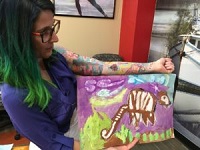
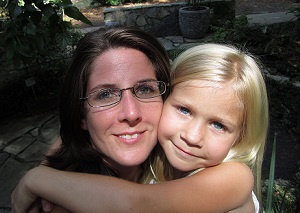 “Hair is just hair,” she said.
“Hair is just hair,” she said.